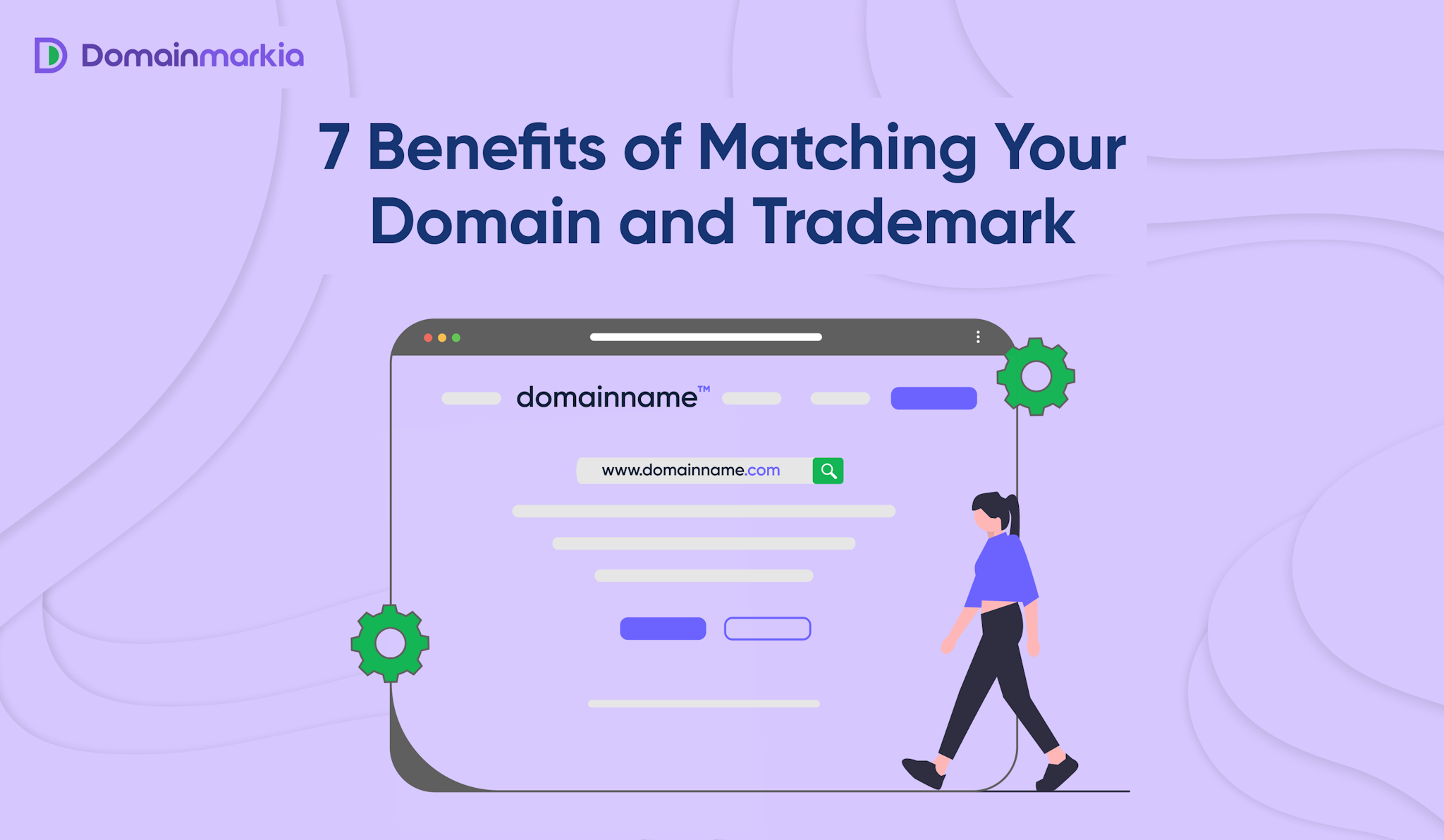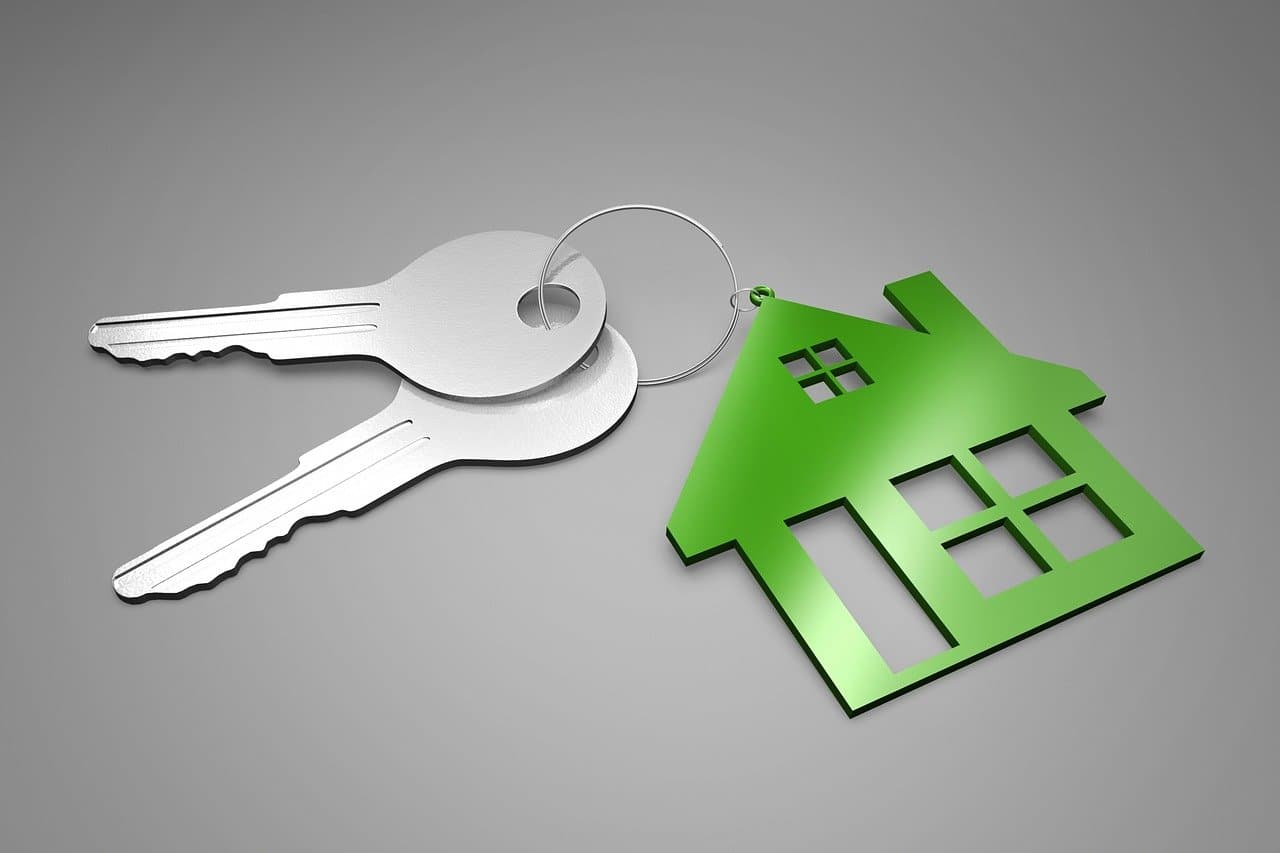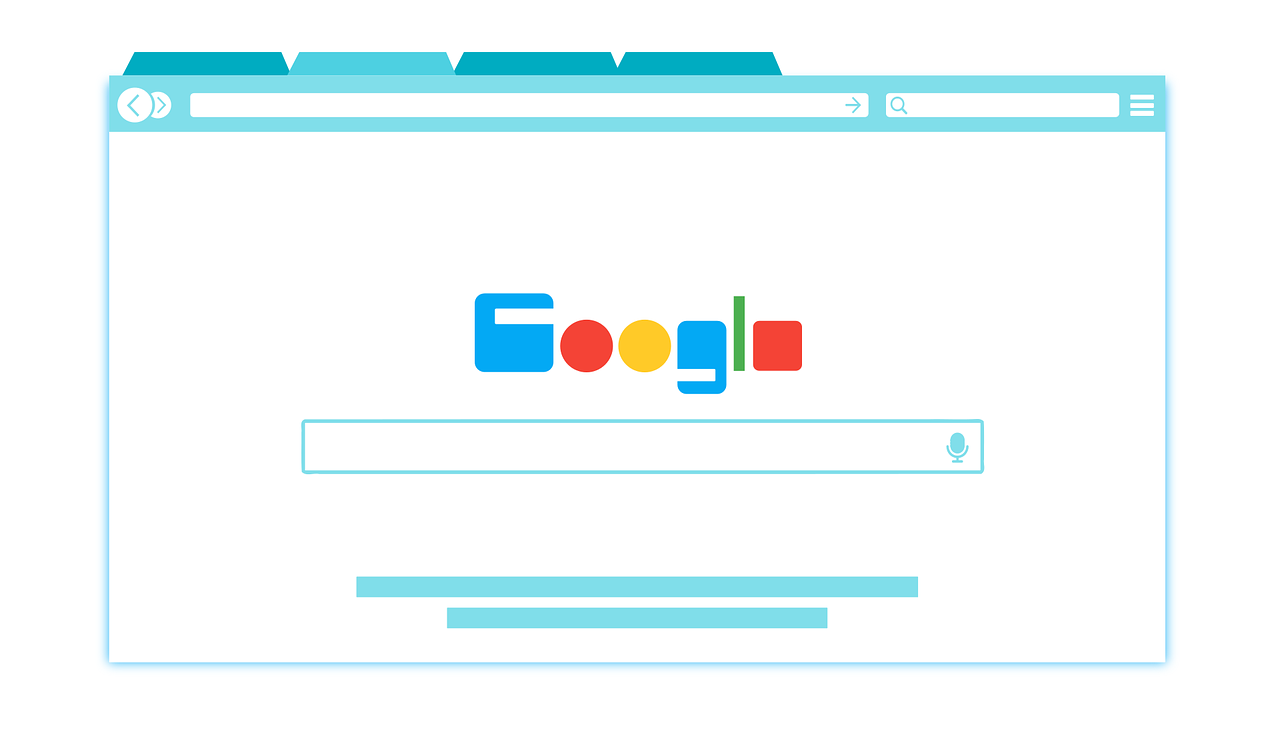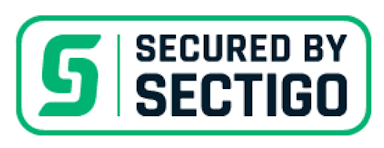Perhaps you have a domain name that you no longer use. Or maybe you've recently acquired one, and someone wants to buy it from you. Either way, selling your domain name (to the right buyer) can be highly profitable.
In this guide, I'll explain to you exactly how you can sell your domain name. Let's get started:
What is a domain name?
Got some time? Read our full article titled “What Is a Domain Name.”
A domain name is essentially your website's online address, much like how a physical address leads to a particular location in the real world.
It's how customers or visitors locate and visit your online business or web presence.
When someone types your domain name into a web browser, they're directed to your website, just as typing a street address into a GPS leads you to a specific destination.
Behind the scenes, domain names are linked to IP (Internet Protocol) addresses.
These are a series of numbers that serve as routing addresses on the internet.
Since remembering a string of numbers can be challenging, domain names were created to provide a human-friendly way of accessing websites.
Having a unique and memorable domain name is vital as it represents your online identity and has a significant role in branding.
A well-chosen domain name can:
- Increase brand recognition
- Promote user engagement
- Contribute to higher search engine rankings.
This is especially important in the digital era when your online presence can significantly impact your success.
Furthermore, domain names can also be seen as valuable digital assets. Popular and in-demand domain names are often valuable and can be traded or sold, much like real estate.
This aspect of domain names adds an exciting dimension beyond their primary function as addresses leading to websites.
And speaking of:
Where can I sell my domain?
Selling a domain name can be done through several channels, each offering unique advantages.
The most common platforms are specialized domain name marketplaces, but there are also alternative avenues like forums and social media groups.
Here's a closer look at each:
Specialized domain name marketplaces
These are platforms specifically designed for buying and selling domain names.
They offer tools and services to facilitate safe and efficient transactions.
Some popular domain auction sites include:
- Sedo: Known for its extensive listing of domains and global reach, Sedo also offers services like domain parking and brokerage.
- Flippa: While it's known for selling online businesses and websites, Flippa also has a robust marketplace for domain names.
These marketplaces provide:
- valuation tools
- Secure transaction processes
- Assistance in the transfer of the domain name to the buyer
Online forums and social media groups
Beyond the specialized platforms, there are online communities where you can list and sell your domain names. These include:
- Domain name forums: Websites like NamePros are communities of domain investors and enthusiasts where you can list your domain, engage in discussions, and get advice from seasoned domainers.
- Social media groups: Platforms like Facebook or LinkedIn have groups dedicated to domain trading. These can be excellent places to network, gauge interest, and find potential buyers.
When using forums and social media, it's crucial to be aware of the community's rules and norms.
Additional avenues
Apart from these, there are other methods like direct outreach to potential buyers who might have an interest in your domain or listing it with a domain brokerage service that can handle the sales process for you.
However, these methods often require more effort and a deeper understanding of the domain market.
How valuable is my domain?
Determining the value of a domain name is akin to appraising a piece of art — it's not an exact science, but certain factors significantly influence its worth.
These include:
- Length: Generally, shorter domain names are more valuable. They're easier to remember and type and have a broader range of potential uses. A domain name with fewer characters is often more desirable and can command higher prices.
- Keyword relevance: Domains that contain popular and highly searched keywords can be extremely valuable. These keywords improve the domain's visibility in search engines and can drive organic traffic to the website. For example, domains that include terms like "insurance," "travel," or "finance" are often in high demand.
- Brandability: A domain name that is catchy, easy to remember, and sounds like a brand can be highly valuable. Such names are unique and can stand out in a crowded online space, making them more appealing to businesses and entrepreneurs looking for a strong online identity.
- Domain history: The history of a domain, including its past ownership, how it has been used, and whether it has a clean record (free of blacklisting or penalties) can influence its value. Domains with a positive history and no negative associations are more valuable.
- Overall demand: The market demand for domain names similar to yours can also dictate its value. Trends in the domain market can change, with certain types of names becoming more popular over time. Understanding current market trends is critical to evaluating your domain's worth.
Tools for valuation
To get an estimated domain value, you can use online tools like EstiBot.
These tools analyze various factors, such as the ones mentioned above, along with comparable sales data, to provide a ballpark figure for your domain's worth.
However, it's important to remember that these tools offer estimates, and the true value can only be realized in the marketplace.
Other considerations
Apart from these primary factors, other elements can also impact a domain's value. These include:
- Extension: Domains with a .com extension are typically more valuable than those with less common extensions. However, newer extensions like .app or .tech can be valuable in specific niches.
- Market trends: Shifts in technology, popular culture, or industry-specific trends can suddenly increase the value of certain domain names.
- Memorability and pronunciation: A domain that's easy to pronounce and spell can be more valuable, as it's more likely to stick in someone's mind.
Is it hard to sell a domain name?
Selling a domain name can be straightforward or challenging, depending on the name's desirability and market trends.
Remember:
Unique, catchy, and versatile domain names are usually easier to sell.
Sometimes, people may overvalue their domain name, thus making it much harder to sell.
To avoid overvaluing your domain name, consider the following:
- Understand market value: Research recent sales of similar domain names to understand the current market. Websites like NameBio provide databases of domain name sales.
- Evaluate the domain objectively: Factors such as length (shorter is often better), memorability, ease of spelling, and the inclusion of keywords relevant to a popular industry can affect value. Also, consider if it's a .com, as these tend to be valued higher.
- Check for existing traffic and revenue: If your domain is already in use and generating traffic or revenue, this can increase its value. However, lack of use doesn't necessarily devalue a domain.
- Get a professional appraisal: If you're unsure, consider getting a professional appraisal. They can provide an unbiased valuation based on various factors, including market trends and the domain's intrinsic qualities.
- Avoid emotional pricing: Attachment to a domain can lead to overvaluation. Try to detach yourself emotionally and view the domain as a market commodity.
- Test the market: List your domain at various price points on marketplaces like Sedo, Afternic, or Flippa to gauge interest. No interest at a high price point might indicate overvaluation.
- Consult with domain brokers: Experienced brokers can offer insights into your domain's value based on their experience in the market.
- Be realistic with expectations: Understand that not every domain is a goldmine. Most domains sell for prices in the low to mid-hundreds, not thousands or millions.
- Consider the specific buyer: A domain's value can be significantly higher to a specific buyer with a particular use in mind compared to the general market.
- Keep up with market trends: Domain value can fluctuate with trends and market demand. Stay informed about what's happening in the domain market.
Looking to register a domain? Do so affordably and efficiently at Domainmarkia.
How to sell a domain name in 5 steps
Ready to sell your domain name? Follow these next five steps to do precisely this:
1. Estimate the domain's value
- Use valuation tools: As mentioned earlier, tools like EstiBot give an estimated value based on several factors, such as keyword popularity, domain length, and historical sales data.
- Consult Experts: For a more nuanced valuation, consider consulting with domain appraisal experts or experienced domain brokers who can offer insights into the domain's potential market value.
2. Choose a sales platform
- Specialized marketplaces: As I mentioned in more detail earlier, platforms like Sedo or Flippa are popular for selling domain names. They offer a wide audience of potential buyers and various selling options (like auctions or fixed-price listings).
- Broker services: If you prefer a hands-off approach, you can work with domain brokers who handle the sales process in exchange for a commission.
- Personal networks: Leveraging personal or professional networks can also be effective, especially for domain names in specific niches.
3. Market your domain
- Social media and forums: Promote your domain on social media platforms and in domain forums. This increases visibility and might attract potential buyers.
- SEO and content marketing: Create content or blogs that showcase the domain name's value, targeting keywords related to your domain to attract organic traffic.
- Email campaigns: Consider contacting businesses or individuals interested in your domain, especially if it matches their brand or industry.
4. Negotiate the sale
- Be open to offers: Even if you have a fixed price in mind, be open to negotiations. Buyers may come with different offers, and flexibility can lead to a successful sale.
- Understand the buyer's needs: Try to understand why the buyer is interested in the domain. This insight can help you negotiate more effectively.
- Be transparent: Clear communication about the domain's history and value can build trust with potential buyers.
5. Complete the transaction
- Use escrow services: Use reputable escrow services like Escrow.com for secure transactions. They ensure that the domain and funds are exchanged safely and fairly.
- Transfer the domain: Once payment is secured, transfer the domain to the buyer. Each registrar has a different process for this, so follow the specific instructions.
- Legal agreements: Drafting a formal sales agreement can provide additional legal protection for both parties in some cases.
Why should I buy or sell a domain name?
Buying or selling domains can be a lucrative business.
Domains are digital real estate, and owning the right name can lead to substantial monetary gains through resale or building a successful online presence.
What is domain flipping?
Domain flipping is the practice of buying domain names with the intent to sell them later at a profit.
(Essentially, it's a way to make money selling domain names.)
This process is similar to real estate flipping, where an investor buys and sells properties for a higher price.
Here's how domain flipping typically works:
- Research and purchase: Investors research to find potentially valuable domain names. These can be brand-new domains (also known as hand-registered domains) or existing ones for sale.
- Registration or acquisition: Once a potentially valuable domain is identified, the investor either registers it (if it's new) or purchases it (if it's already owned by someone else). The aim is to acquire the domain at a relatively low cost.
- Value addition (Optional): Some domain flippers choose to add value to their domains by developing a website on them, increasing web traffic, or using search engine optimization (SEO) to make the domain more attractive to potential buyers. However, many flippers sell the domain as-is without any additional development.
- Marketing the domain: The investor then lists the domain for sale on various platforms like domain marketplaces (e.g., Sedo, Flippa, Afternic) or through personal networks. Marketing may also involve reaching out directly to potential buyers with a specific interest in the domain.
- Selling at a profit: The goal is to sell the domain at a higher price than what it was purchased for, thus making a profit. The time it takes to sell a domain can vary greatly – some domains are sold quickly, while others may take years to find the right buyer.
- Transfer and transaction completion: Once a buyer is found, the domain is transferred to the new owner, and the seller receives the payment. This process is usually facilitated by the platform where the domain was sold, which may also handle the financial and legal aspects of the transaction.
Domain flipping can be profitable, but it's not without risks.
It requires good market knowledge, the ability to predict future trends, and sometimes a bit of luck.
Not all domain names appreciate, and there's no guarantee of a sale.
Additionally, it's vital to avoid speculative practices that can be seen as cyber-squatting, which is illegal in many jurisdictions.
Cyber-squatting involves registering domain names to profit from the trademarks of others.
How to Safely Transfer a Domain Name
Transferring ownership of your own domain names is a critical process that requires careful attention to ensure both parties are protected and the transfer goes smoothly.
Here are the key steps involved:
1. Use a secure payment method
- Select a trusted escrow service: Services like Escrow.com are widely used in domain sales. They act as a neutral third party to securely hold the buyer's payment until the domain transfer is completed.
- Understand the payment process: Familiarize yourself with the process and terms of the escrow service. Ensure both parties agree on the conditions set forth by the escrow provider.
- Avoid direct payment methods: Avoid using direct payment methods like wire transfers or PayPal, as they offer less protection in a domain sale transaction.
2. Transfer the domain
- Initiate the transfer with your registrar: After confirming receipt of the payment in escrow, start the domain transfer process through your domain registrar. This usually involves unlocking the domain and generating an authorization code (EPP code).
- Provide the buyer with transfer details: Share the authorization code with the buyer and provide them with any specific instructions related to the transfer process.
- Follow registrar-specific procedures: Each domain registrar has particular procedures for transferring domains. It's essential to follow these guidelines carefully to avoid any complications.
3. Confirm transfer
- Verification by the buyer: Once you have initiated the transfer, the buyer should verify the domain's receipt through their registrar. This may take a few days, depending on the registrars involved.
- Release of funds: After the buyer confirms control over the domain, inform the escrow service so they can release the funds to you.
- Keep records of the transaction: Retain all correspondence and receipts related to the transaction. This includes communications with the buyer, escrow service, and registrar.
Additional tips
- Communicate clearly: Keep an open line of communication with the buyer throughout the process. This helps in addressing any concerns or questions that arise.
- Be aware of transfer locks: Some domains may have a transfer lock for a certain period after registration or renewal. Ensure your domain is eligible for transfer before initiating a sale.
- Consider domain transfer timeframes: Transfers can take anywhere from a few hours to several days. Be aware of this timeline and communicate it to the buyer to set the right expectations.
A quick story — how one man made millions from selling tesla.com
The sale of the domain tesla.com to Tesla, Inc. is a striking example of the immense value a domain name can hold.
Stuart Grossman, a Silicon Valley engineer, owned this particular domain.
Grossman had registered the domain long before the electric car company Tesla gained prominence.
Initially, Tesla operated under the domain TeslaMotors.com.
However, Elon Musk, Tesla's CEO, envisioned the company as more than just a car manufacturer and aimed to acquire the more concise and brand-representative domain, tesla.com.
The pursuit to acquire this domain was neither quick nor easy, illustrating the strategic importance of a well-aligned domain name in the digital era.
After about a decade of efforts, Tesla purchased the domain name in 2016 for a remarkable $11 million.
This acquisition was part of Tesla's strategy to establish its brand identity more broadly as an innovative energy and technology company that goes beyond automotive manufacturing.
The negotiation and eventual acquisition of tesla.com highlight the potential of domain names as significant digital assets, especially when they align closely with a well-known brand or industry.
Maximize profit from domain sales
In the realm of digital real estate, domain names stand out as unique assets with significant potential for profit. T
his comprehensive guide has walked you through the essential steps of selling a domain name, from understanding its value to completing a secure transaction.
Whether you're a seasoned domain investor or a newcomer to this market, the insights provided here equip you with the knowledge to navigate the domain selling process effectively.
FAQs
How much can you sell domain names for?
Prices vary widely, from a few dollars to millions, depending on factors like uniqueness, length, and relevance.
How do I sell my existing domain?
(1) Estimate its value, (2) list it on a selling platform, (3) market it effectively, (4) negotiate with potential buyers, and (5) ensure a secure transaction process.
Is it legal to sell a domain?
Yes, selling domain names is legal, similar to selling any other form of property.
What is the most valuable domain name ever reported?
The most expensive domain name ever sold is Cars.com, which went for $872 million in 2014. Gannett Co. purchased a share in the business as well. At the time of the sale, the company was valued at approximately $1.8 billion.
Is domain selling profitable?
Yes, it can be highly profitable, especially for short, memorable domains with high commercial potential.















